speakers

Elie Bou-Zeid
Professor of Civil and Environmental Engineering, Princeton University
Elie Bou-Zeid is professor of civil and environmental engineering and director of Princeton’s Program in Environmental Engineering and Water Resources. He is currently the chair of the Princeton Metropolis Project, which aims to guide technological innovations toward a pathway that improves urban living. He specializes in atmospheric science and modeling, with a special emphasis on numerical, experimental, and analytical studies of air flow and transport dynamics near the earth surface. His work is applied in urban microclimates and wind energy studies. He is a High Meadows Environmental Institute Associated (HMEI) Faculty and is affiliated with HMEI’s Grand Challenges Program.

Juan Camilo Osorio
Assistant Professor, Graduate Center for Planning and the Environment, Pratt Institute
Juan Camilo’s work leverages 16 years of professional experience as an architect and urban planner working in New York City on community planning, environmental justice and climate change mitigation and adaptation planning. His work emphasizes the tension between cities and the political economy of climate action and disaster recovery, where social and environmental inequality exacerbate each other. He is an Assistant Professor at Pratt Institute’s Graduate Center for Planning and the Environment, where he teaches applied research and planning studios in collaboration with grassroots leaders. His courses nurture mutual learning and explore the ethical and political complexity of the planning profession. As a Research Affiliate and Co-Investigator with the MIT Environmental Solutions Initiative, he collaborates with different partners in Colombia to study community-led low-carbon development strategies (LCDS) to support local communities in monitoring and adapting to climate change, as a new source of income, wealth and security.

Felix Creutzig
Chair, Sustainability Economics, Technische Universität Berlin
Felix Creutzig is head of the working group Land Use, Infrastructures and Transport and Chair of Sustainability Economics at Technische Universität Berlin. He was the lead author of the IPCC’s Fifth Assessment Report and lead analyst of the Global Energy Assessment. His research focuses on conceptualizing and quantifying GHG emissions of cities worldwide, assessing opportunities for GHG mitigation of cities worldwide, building models of sustainable urban form and transport, land rents as a complement for financing sustainable infrastructures, analyzing the role of capital stocks and infrastructures for climate change mitigation, and land use-mediated uncertainty in integrated assessments, particularly those related to bioenergy.
Before joining the MCC and TU Berlin, Creutzig was a postdoc fellow at the Energy and Resources Group at the University of California, Berkeley, collaborating with Dan Kammen, Lee Schipper and Elizabeth Deakin, and the Energy Foundation China in Beijing. He received his Ph.D. in Computational Neuroscience from Humboldt-Universität zu Berlin, and holds a Master of Advanced Studies (Path III in Mathematics) from Cambridge University, UK. From 2009 until 2011, Creutzig was also chair of Netzwerk Europa, the Alumni organization of the Studienkolleg zu Berlin.
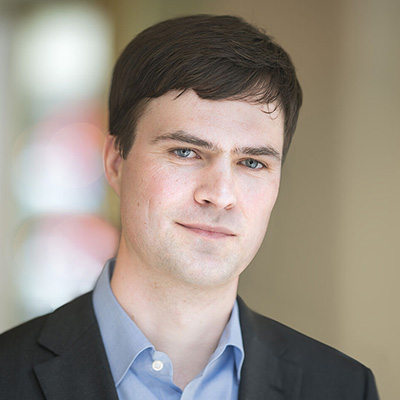
Christian Flachsland
Professor of Sustainability; Director, Centre for Sustainability at the Hertie School, Berlin
Christian Flachsland is Professor of Sustainability at the Hertie School and Director of the School’s Centre for Sustainability. He is also a Research Fellow at the Mercator Research Institute on Global Commons and Climate Change (MCC), where he previously led the working group ‘Governance’. His research focuses on the design, governance and politics of climate, energy and sustainability policy. He publishes in Science, Nature Climate Change, and leading journals on climate policy and climate politics. He co-coordinates the research on Governance in the Kopernikus-Ariadne project, a major research consortium assessing climate policy options for Germany and Europe, funded by the German Federal Ministry of Education and Research (BMBF).

Chris Greig
Theodora D. ’78 and William H. Walton III ’74 Senior Research Scientist, Acting Associate Director for External Partnerships, Andlinger Center for Energy and the Environment, Princeton University
Chris Greig joined Princeton in 2020 as a member of the Energy Systems Analysis Group at the Andlinger Center. Greig is a principal investigator of Princeton’s Net-Zero America (NZA) study, which identifies five technological pathways to achieve net-zero emissions in the U.S. by 2050, and is contributing to NZA-inspired studies for Australia and Asia. Greig was director of the Dow Centre for Sustainable Engineering Innovation at The University of Queensland (UQ) in Australia and the founding director of the UQ Energy Initiative.
During a 25-year career in industry, Greig held executive roles in the construction and energy resources sectors, including as CEO of ZeroGen, a large-scale carbon capture and storage (CCS) project. Greig also served as chairman of the Energy Policy Institute of Australia and deputy chairman of Gladstone Ports Corporation. His main research interests lie in energy transitions, economics and policy, mega-project implementation, and CCS. Greig has a Ph.D. in chemical engineering and is a fellow of the Australian Academy of Technology and Engineering (ATSE).

Jesse Jenkins
Assistant Professor of Mechanical and Aerospace Engineering and the Andlinger Center for Energy and the Environment, Princeton University
Jesse Jenkins is a macro-scale energy systems engineer with a focus on the rapidly evolving electricity sector, including the transition to zero-carbon resources, the proliferation of distributed energy resources, and the role of electricity in economy-wide decarbonization. He leads the Princeton ZERO Lab – the Zero carbon Energy systems Research and Optimization Laboratory — which conducts research to improve decision-making to accelerate rapid, affordable, and effective transitions to net-zero carbon energy systems.
Jenkins completed a Ph.D. in Engineering Systems (’18) and MS in Technology and Policy (’14) at the Massachusetts Institute of Technology and a BS in Computer and Information Science (’06) at the University of Oregon. He worked previously as a postdoctoral Environmental Fellow at the Harvard Kennedy School and the Harvard University Center for the Environment, a researcher at the MIT Energy Initiative, a research fellow at Argonne National Laboratory, the Director of Energy and Climate Policy at the Breakthrough Institute, and a Policy and Research Associate at Renewable Northwest.
Jenkins has published peer-reviewed papers in the journals Joule, The Energy Journal, Economics of Energy and Environmental Policy, Applied Energy, Nuclear Technology, Energy Policy, and WIREs: Climate Change. His work has been supported by competitive fellowships from the National Science Foundation, MIT Energy Initiative, Martin Family Society for Fellows in Sustainability, and Harvard University Center for the Environment. Jenkins has given seminars to executives at global electric utility and energy technology companies, presented his work to staff and commissioners of the Federal Energy Regulatory Commission and state-level regulators and policy makers across the country. He is also a member of the National Academies of Science, Engineering and Medicine “Committee on Accelerating Decarbonization in the UnitedStates: Technology, Policy, and Societal Dimensions,” and he has delivered invited testimony before the United States Senate Committee on Energy and Natural
Resources and the United States House Select Committee on the Climate Crisis. His research is regularly featured in media outlets including the New York Times, Wall Street Journal, Washington Post, and National Public Radio.

Marjorie Kaplan
Associate Director, Rutgers Climate Institute; Co-director, New Jersey Climate Change Resource Center
Marjorie Kaplan has worked for 40 years at the nexus of environmental science, natural resources, and human and ecological health within federal and state programs, for a major utility, two international consulting firms, and for the past decade in academia. She manages the Rutgers Climate Institute portfolio, which includes developing and conducting research, outreach, and education on the climate system and impacts of a changing climate across natural, social, and policy sciences. Her own applied research includes foci on resiliency planning and policy, climate and public health, and climate and natural and working lands. She is co-director of the NJ Climate Change Resource Center and co-facilitates the NJ Climate Change Alliance. Kaplan spent more than two decades in government where she managed NJ’s inaugural Office of Climate and Energy, overseeing regulatory programs under NJ’s Global Warming Response Act, the Global Warming Solutions Fund Law and regional initiatives to address climate change including the Regional Greenhouse Gas Initiative. While in government, she was instrumental in developing and conducting applied science and research related to human health and ecological risk, fisheries, forestry, endangered and threatened species, wetlands, watersheds, and changing landscapes. Kaplan holds a Masters and Doctorate (with distinction) in public health (Environmental Sciences) from Columbia University and a bachelor’s of science degree in natural resources from Cornell University.
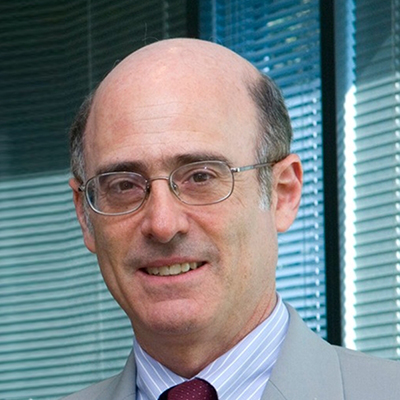
Robert Lempert
Director, RAND Corporation, Frederick S. Pardee Center for Longer Range Global Policy and the Future Human Condition; Principal Researcher; Professor, Pardee RAND Graduate School
Robert Lempert is a principal researcher at the RAND Corporation and Director of the RAND Frederick S. Pardee Center for Longer Range Global Policy and the Future Human Condition. His research focuses on risk management and decision-making under conditions of deep uncertainty. Lempert is a convening lead author for Working Group II of the United Nation’s Intergovernmental Panel on Climate Change (IPCC) Sixth Assessment Report, was a chapter lead for the Fourth US National Climate Assessment, is a member of Harvard’s SCoPEx geo-engineering advisory panel, and was a member of California’s Climate-Safe Infrastructure Working Group. Lempert is the inaugural president of the Society for Decision Making Under Deep Uncertainty (www.deepuncertainty.org), a Fellow of the American Physical Society, a member of the Council on Foreign Relations, and was also the Inaugural EADS Distinguished Visitor in Energy and Environment at the American Academy in Berlin. A professor of policy analysis in the Pardee RAND Graduate School, Lempert is co-author of the book “Shaping the Next One Hundred Years: New Methods for Quantitative, Longer-Term Policy Analysis.”

Christos Maravelias
Anderson Family Professor in Energy and the Environment; Professor of Chemical and Biological Engineering and the Andlinger Center for Energy and the Environment, Princeton University
Christos Maravelias is the Anderson Family Professor in the Department of Chemical and Biological Engineering, and the Andlinger Center for Energy and the Environment at Princeton University. His research interests lie in the general area of process and energy systems engineering and optimization. Specifically, he is studying production planning and scheduling, supply chain optimization, and chemical and energy systems synthesis and analysis with an emphasis on renewable energy technologies. He is the recipient of a National Science Foundation CAREER award, the 2008 David Smith and the 2013 Outstanding Young Researcher awards from the American Institute of Chemical Engineers, and the 2016 Production and Operations Management Society Applied Research Challenge Award.

Gary Martin
Senior Director Energy Transition, Worley
Gary Martin leads the hydrogen energy transition unit for Worley in the North American market. He is experienced in managing many phases of business, having experience as a P&L Manager, Director of Execution, Project Manager, Sales Manager, and Site Manager. Over the last three years, he has also led the development of alternate energies solutions that are helping clients meet their decarbonization goals. He is specialized in Power Generation, Water Treatment, Natural Gas Processing and Clean Fuel Generation, Hydrogen, CCUS, Biofuels, Ammonia.
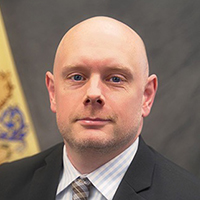
Sean Moriarty
Deputy Commissioner for Legal, Regulatory and Legislative Affairs, New Jersey Department of Environmental Protection
Sean Moriarty serves as Deputy Commissioner for Legal, Regulatory and Legislative Affairs to Commissioner Shawn M. LaTourette. Moriarty leads DEP’s internal legal team and serves as its general counsel on all matters of regulatory compliance and rule-making and will oversee the newly created Office of Enforcement Policy. He also is a member of the Commissioner’s executive team, providing input on priority initiatives that include climate change and environmental justice.
Previously, Moriarty served as Chief Advisor for Regulatory and Legislative Affairs. Before assuming this position, he was the Director of the Office of Legal Affairs after several years as a Regulatory Officer with the Bureau of Legal Services and Stewardship for the DEP’s Green Acres Program. Before joining DEP, Moriarty represented the department as a Deputy Attorney General.
Moriarty received both his undergraduate and law degrees from Rutgers University. He lives with his wife, children and two energetic dogs in Haddon Township.
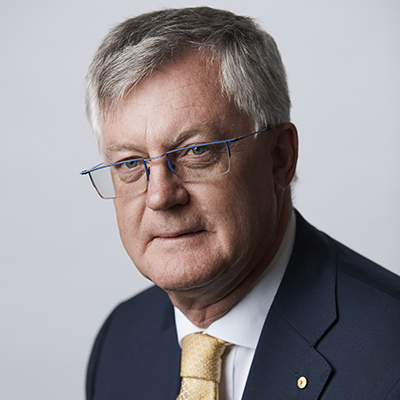
Martin Parkinson
Chancellor, Macquarie University; Non-executive Director, Worley; Deputy Chair of the Great Barrier Reef Foundation
Martin Parkinson served in Australian Federal Government leadership positions on all facets of economic, social, foreign, defense and national security policies for almost 40 years. Parkinson retired from the Australian Public Service in 2019, having been Secretary of three Departments: Prime Minister and Cabinet: The Treasury; and the inaugural Department of Climate Change. Parkinson is currently Chancellor of Macquarie University, non-executive director of Worley, North Queensland Airports, Champions of Change Coalition and O’Connell Street Associates, Chair of the Sir Roland Wilson Foundation and Deputy Chair of the Great Barrier Reef Foundation. He is a member of the New South Wales Net Zero Emissions and Clean Economy Board, the Bain Advisory Council and the B Team Australasia, serves on the advisory boards of the Asia Society Australia, Thrive Refugee Enterprises, the Net Zero Australia project, and is on the organizing committee of the Climate Leaders Coalition.

Anu Ramaswami
Professor of Civil and Environmental Engineering, Princeton Institute for International and Regional Studies, and the High Meadows Environmental Institute; Sanjay Swani ’87 Professor of India Studies; Director, M.S. Chadha Center for Global India, Princeton University
Anu Ramaswami is an interdisciplinary environmental engineer and professor at Princeton University, with appointments across India studies, civil and environmental engineer, and the High Meadows Environmental Institute. She has pioneered sustainable urban systems science and knowledge co-production for developing low-carbon, healthy, and equitable cities. Her work explores how eight key sectors – that provide water, energy, food, buildings, mobility, connectivity, waste management and green/public spaces – shape human and environmental wellbeing, from local to global scales. Ramaswami’s work integrates environmental science and engineering, industrial ecology, public health and public affairs, with a human-centered and systems focus. She is the author of more than 100 peer-reviewed articles, published in leading journals such as Science, Nature Climate Change, Nature Sustainability, Proceedings of the National Academy of Sciences (PNAS), Environmental Science & Technology, and Environmental Research Letters. She is the inaugural director of the M.S. Chadha Center for Global India at Princeton University, the lead principal investigator and director of the National Science Foundation (NSF)-supported Sustainable Healthy Cities Network, and serves on the United Nations Environment Programme’s International Resource Panel.

Abe Silverman
Executive Policy Counsel, New Jersey Board of Public Utilities
Abe Silverman returned to government service as the General Counsel and then the Executive Policy Counsel of the New Jersey Board of Public Utilities in early 2019. The NJ BPU is the lead energy regulator for the State of New Jersey. At the BPU, Abe works on advancing New Jersey’s clean energy agenda, with a special emphasis on carbon policy and market design issues, as well as the A-to-Z of regulating New Jersey’s public water, electric and gas utilities.
Prior to joining the BPU, Abe worked for more than a decade at NRG Energy, Inc., ultimately holding the positions of Vice President of Regulatory Affairs & Deputy General Counsel. Abe got his accidental start as an energy regulator in 2002, when he joined the Federal Energy Regulatory Commission’s Office of General Counsel. Abe graduated from the University of Maryland with a B.S. in Geology and a B.A. in English, and then received his Juris Doctor from The George Washington University School of Law.
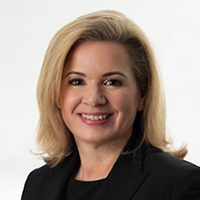
Mary Streett
Senior Vice President Americas, Communications and External Affairs, bp
Senior Vice President Americas, Communications and External Affairs, bp Mary Streett is bp’s senior vice president Americas, communications & external affairs. She leads a team from across the Americas, including Brazil, Canada, Mexico, Trinidad & Tobago, and the United States. In this role, she is responsible for public policy, government relations, and communications in the Americas region. Streett joined bp in 2014 as vice president and head of U.S. government affairs. In this role, she oversaw federal, state, and local government relations and played a central role in bp’s strategic planning.
Prior to bp, Streett served as the vice president of federal government affairs at Exelon, one of the nation’s leading consumer electricity and gas providers. From 2002 to 2010, Mary, an attorney, practiced with law firm Mayer Brown LLP, where she was a partner in the government and global trade group and focused on government and regulatory matters. Streett also previously worked on several presidential campaigns. She served in the Clinton Administration on the White House staff and as deputy general counsel for the Commerce Department.
Streett currently serves as Board Chairman and President of the bp foundation as well as a board member of bp America. She also serves as a board member of the Middleburg Film Festival. Streett received her J.D. from the William H. Bowen School of Law at the University of Arkansas and was a visiting student at Georgetown University Law Center. She graduated from the University of Tulsa with a Bachelor of Science in business administration and attended the Institute of European Studies in Vienna and London to study international business and economics.
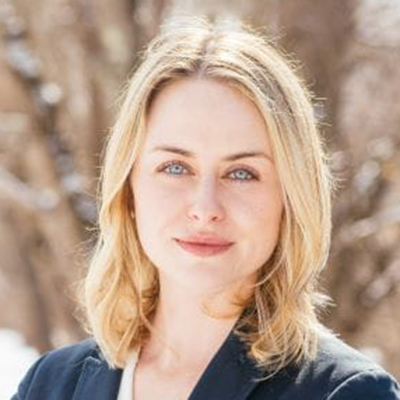
Madeline Urbish
Head of Government Affairs and Market Strategy, NJ, GAP, NJ Market Commercial, Ørsted
Madeline “Maddy” Urbish serves as Head of Government Affairs and Market Strategy for New Jersey with Ørsted North America. She is responsible for working closely with New Jersey government and non-governmental agencies in building the wind industry in the Tri-State and Mid-Atlantic regions.
Prior to joining the Ørsted team in March 2021, Urbish worked as a Senior Associate with River Crossing Strategy Group where she represented clients in the energy sector. In 2018, Urbish served as Policy Advisor to Governor Phil Murphy, focused on energy and environment. During this time, she worked on the drafting and implementation of the Clean Energy Act of 2018 as well as other cornerstone aspects of Governor Murphy’s clean energy agenda including the Energy Master Plan and rejoining the Regional Greenhouse Gas Initiative. Prior to serving in the Murphy Administration, Urbish worked in a government relations role with New Jersey Audubon, where she managed a multi-state coalition of NGOs and led federal advocacy efforts, including establishing and funding a new conservation program. Additionally, Urbish served in the office of an U.S. Representative, worked for a consulting firm representing local governments with U.S. Army Corps of Engineers projects, and spent four years at The College of New Jersey managing coalitions focused on criminal justice and recidivism in Trenton. Urbish began her career serving as an intern and Legislative Research Aide for then-Assemblywoman Bonnie Watson Coleman.
Urbish was raised in Bergen County and received her Bachelor of Arts degrees in History and Political Science from The College of New Jersey, and earned a Masters in Public Administration from the University of Pennsylvania. She currently serves on the Board of Trustees of the Chamber of Commerce of Southern New Jersey and on the Board of Trustees of New Jersey Future. Urbish has several years of experience volunteering on local planning and zoning Boards and on City Council. She lives in Lambertville, NJ with her husband, son, and two dogs.
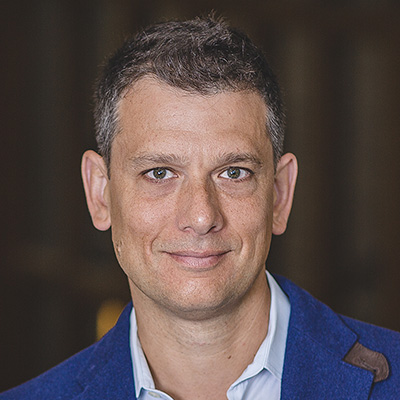
Gabriel Vecchi
Professor, Geosciences Department and High Meadows Environmental Institute; Associated Faculty, Atmospheric and Oceanic Sciences Program; Director, High Meadows Environmental Institute; Deputy Director, Cooperative Institute for Modeling the Earth System, Princeton University
Gabriel Vecchi is Professor in the Department of Geosciences and the High Meadows Environmental Institute. Since July 2021, he has been Director of the High Meadows Environmental Institute. He is also the Deputy Director of the Cooperative Institute for Modeling the Earth System (CIMES), a joint institute between Princeton University and NOAA, and from July 2019 to July 2021 was its Director. Prior to coming to Princeton University in 2017, he was a Research Oceanographer and the Head of the Climate Variations and Predictability Group at the NOAA Geophysical Fluid Dynamics Laboratory (GFDL) in Princeton, New Jersey, where he was since 2003. His research focuses on understanding short- and long-term changes to the oceans and atmosphere, including the monsoons, El Niño, and the impact of climate on tropical cyclones, weather extremes, and global patterns of rainfall and drought.
Vecchi has received a number of awards including the U.S. Presidential Early Career Award for Scientists and Engineers (PECASE), the American Meteorological Society’s Clarence Leroy Meisinger Award, the Ascent Award from the Atmospheric Sciences Section of the American Geophysical Union, the Daniel L. Albritton Outstanding Science Communicator Award, and the U.S. Department of Commerce Gold Medal. Vecchi’s Ph.D. in Oceanography is from the University of Washington. His undergraduate degree in Mathematics is from Rutgers University.
Vecchi is a member of NOAA’s Climate Observing Systems Council, the National Center for Atmospheric Research Community Earth System Model Scientific Steering Committee and U.S. National Committee for Geodesy and Geophysics at the National Academy of Sciences. Gabriel was a co-Chair of the US-CLIVAR Working Group on Hurricanes and Climate, and a Lead Author in Working Group I of the IPCC Fifth Assessment Report. He has authored or co-authored of over 200 peer-reviewed publications.

Elke U. Weber
Associate Director for Education, Andlinger Center for Energy and the Environment, Gerhard R. Andlinger Professor in Energy and the Environment Professor of Psychology and Public Affairs, Princeton School of Public and International Affairs, Princeton University
Elke Weber’s research models decision-making under risk, uncertainty, and time delay from a psychological and neuroscience perspective, with applications to both financial and environmental decisions. She was a lead author on the Fifth Assessment Report and is one on the current Sixth Assessment Report of the UN Intergovernmental Panel on Climate Change (IPCC). Weber has served as president of three professional societies (Neuroeconomics; Judgment and Decision Making; and Mathematical Psychology) and is a fellow of the American Psychological Association, the Association for Psychological Science, and the Society for Experimental Psychology. She received the Distinguished Scientific Contribution Award from the Society for Risk Analysis and is a member of the National Academy of Sciences, the German National Academy of Sciences, and the American Academy of Arts and Sciences. Effective July 1, 2022, Weber will be the next director of the Princeton Fung Global Fellows Program, an international effort based at the Princeton Institute for International and Regional Studies.

Lorraine Whitmarsh
Professor of Environmental Psychology; Director, Centre for Climate Change and Social Transformations, University of Bath
Lorraine Whitmarsh, MBE, is an environmental psychologist, specialising in perceptions and behaviour in relation to climate change, energy and transport, based in the Department of Psychology, University of Bath. She is Director of the ESRC-funded UK Centre for Climate Change and Social Transformations (CAST). She regularly advises governmental and other organisations on low-carbon behaviour change and climate change communication, was one of the expert leads for Climate Assembly UK, and Lead Author for IPCC’s Working Group II Sixth Assessment Report. Her research projects have included studies of meat consumption, energy efficiency behaviours, waste reduction and carrier bag reuse, perceptions of smart technologies and electric vehicles, low-carbon lifestyles, and responses to climate change.
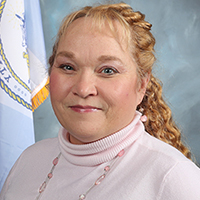
Barbara Woolley-Dillon
Professional Planner, Tuckerton, NJ
Barbara Woolley-Dillon maintains a private Planning practice in Tuckerton, New Jersey. Although her initial focus was finance and investments, she transitioned into the planning field over ten years. Engineering site design, landscape, interior design, and architectural design, and serving as a land-use paralegal brought Woolley-Dillon to the realization that she could combine these vastly different disciplines as a professional planner.
During her nearly forty (40) year career, she has worked for several firms, founded/ managed a private planning practice, and then a private engineering and planning firm. Ms. Woolley-Dillon has served as a zoning official, code enforcement official, and flood plain manager. She has also held positions as a director of planning & development, community development director, redevelopment Planner, and municipal Planner for other communities throughout New Jersey.
Most recently she has been focusing on sustainability and resiliency and their impacts on coastal areas. These efforts generated in her role in as zoning official and Planner for Mantoloking immediately after the events of Super Storm Sandy unfolded. She continued her efforts during her employment with Atlantic City. Part of her duties included refining the city’s vision for development and revitalization while in the process of updating their existing Master Plan. This document will continue to move Atlantic City toward fulfilling its vision.
She maintains certifications and licenses from the New Jersey State Board of Professional Planners, and the American Institute of Certified Planners, and the Environmental Certification relating to wetlands delineation (soils, hydrology, and vegetation). At this time she is pursuing the Certified Public Manager (CPM) and Certified Flood Plain Manager (CFM) designations. Additionally, she teaches the mandatory training class for planning and zoning board members and has been a guest lecturer for educational classes related to planning.
Ms. Woolley-Dillon achieved an associate’s degree in architectural and interior design, a bachelor’s degree in urban studies from Rutgers University, Camden, and a master’s degree in city planning from the University of Pennsylvania.